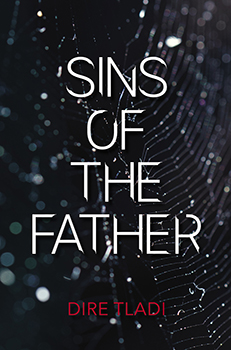Africa Scene: Justice on an International Scale
Dire Tladi’s first novel, Blood in the Sand of Justice, introduced Tolamo Moagi, a former deputy prosecutor at the International Criminal Court. It was acclaimed by reviewers as a thriller one couldn’t put down. In his other life, Dire is a highly accomplished international lawyer and academic and a former UN International Law Commission Chair. He has also held senior appointments for the South African government, so it’s not surprising that it’s been quite a wait for his second novel, SINS OF THE FATHER.
It’s wide-ranging in geography and plot, starting with a terrorist attack at a senior intergovernmental meeting in the DRC. Once Tolamo gets involved, he meets Julie, a French spy whose partner was killed in the attack, and Nyeleti, a very smart policewoman, and his feet hardly touch the ground as he pursues the secret of Lion’s Mouth from South Africa to Sudan, to the US, to Paris, Vienna… Grab a coffee to stay alert and keep up with him!
Dire, what drew you to writing thriller fiction?
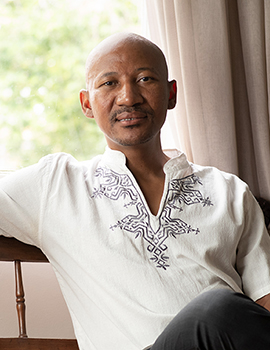
I have always loved writing. As a kid, I wrote poetry. It was not particularly good, but I wrote it and enjoyed writing it. To this day, poetry provides an emotional outlet whenever I am going through something painful or joyous. The point is I love to write, and not just academic writing.
Why the shift to fiction? So fiction, like poetry, is creative writing, and I enjoy creating. But poetry is different. Poetry, or at least my poetry, while allowing creativity with words and expression of emotion, provides less space for imagination. Fiction, on the other hand, allows me to create through imagination. You know, I sometimes sit in restaurants and look at people, observe them and imagine their stories, or put differently, write their stories in my head: Are those two a romantic couple? I wonder why she started smoking? Is that shirt a fashion statement, a statement of originality, or does he really think it looks good? How did they meet, and what attracted them to each other? Why are they not talking? Are they fighting? No, their silence is a comfortable silence, so their bond must be strong and unshakeable, not dependent on constant communication.
Writing fiction allows me to take all the stories imagined over decades and create something with them. So now, unlike with poetry, the creation is not just with feelings but also with the many stories I have created observing people.
Why thrillers? The simplest response is that I read a lot of thrillers, so it was natural. But also, the materials gathered in my eight-year gap as a diplomat and civil servant opened up many avenues for thrillers. Fiction provides a creative outlet to share because the reader is never sure what is real, what is created, what is creative license, and so on.
Your protagonist, Tolamo Moagi, is also a professor of international law and has worked for the International Criminal Court. How much of Tolamo is based on your experiences and personality? I hope you haven’t been shot in the line of duty!
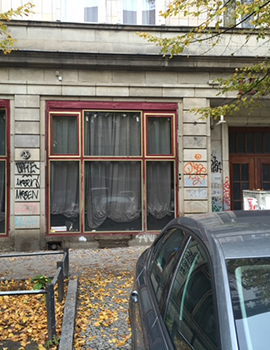
There are so many sources for creating characters. People I know. People encountered briefly. People I have seen and observed. And, of course, it is impossible for my own personality not to form an integral part of the creative process, including the creation of characters. But this applies not only to the main character. It applies to all the characters and not just the protagonist.
Likewise, the events and situations are based largely on things experienced or observed but also on second-hand accounts of experiences of others. The imagined experiences of people I know, have met, and have imagined are also all part of the process. I throw all these in the crucible of creativity and then see what comes out.
In creating Tolamo, I applied the same principle. I drew on many experiences, some my own and some not. I also drew on many personality traits, some my own and some of others. I do not have firsthand experience of many things that have happened to Tolamo—I have not been shot or fired. But I have dealt with pain, distress, and great loss, and I have seen how others have dealt with pain, distress, and great loss, and I used all of it when developing Tolamo.
The plot of SINS OF THE FATHER is complex, with many apparently independent strands weaving together. The terrorist attack in the DRC seems random, but then it turns out from a text message that it is directed against South Africa in some way. Other attacks follow as the stakes increase, and it becomes clear that the terrorists are extortionists. What gave you the idea for the plot?
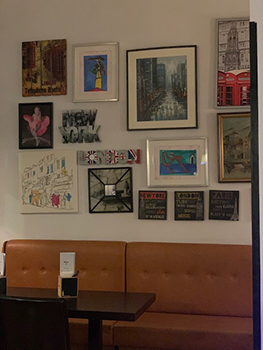
I only thought of the event (what Stephen King called “the situation” in On Writing): the big terrorist attack in the DRC, and from there, I allowed the story to unfold—to tell itself in a sense. For both SINS OF THE FATHER and my first novel, Blood in the Sand of Justice, I only asked myself, “How would someone like Tolamo react when confronted by the situation of those sets of circumstances and the unfolding chain of events.” What I find amazing about the writing process is that if you allow the story to tell itself, it will both create the strands and pull them together.
My role as a writer is to provide the materials and the words. The process is difficult to explain because all of these have to be connected in a way that creates a single, cohesive whole. But, it works—modern basketball coaches have a mantra, “trust the process,” and I think when you are creating, and your approach is to let the story write itself, that is very important advice. And if you trust it, it will produce results that work.
The title of the book refers to Muammar Gaddafi, and much of the tension revolves around a secret development in Libya called Lion’s Mouth. Did you imagine the Gaddafi-Zuma meetings as a “what if?” scenario?
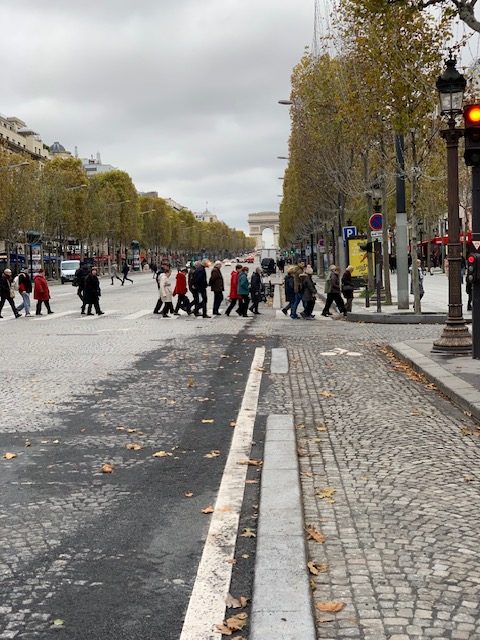
Yes and no. I know that Zuma led the AU High Level Committee and that in that capacity, he would have met with Gaddafi, so in that sense, those were not “what if scenarios.” The “what ifs” were whether he met privately and, if so, what was discussed in those private meetings. When I conceptualized the seed-idea, the terrorist attack in the DRC, I had never thought that central to the story would be Zuma and his imagined relationship with Gaddafi.
There are many things in the novel about Gaddafi that are imagined. They may be true, but it does not matter. The main thing is that none are beyond the realm of possibilities.
Tolamo is a complex character. He finds it almost impossible not to flirt with members of the opposite sex, sometimes getting him into trouble. He is a brilliant lawyer, yet he will take shortcuts when necessary. His taste for danger and excitement is not popular with his family. Above all, he has a strong commitment to protecting people and preventing bloodshed. Would you comment?
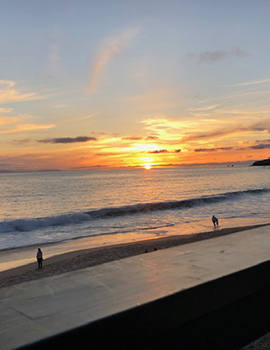
I don’t know that he finds it impossible not to flirt, but he is conscious of the “flirt” inside. But more seriously, Tolamo’s complex character is a product of his past, which has many highs and lows. It is filled with so much joy and so much pain. Much of the hurt in his past is self-inflicted, and he knows that. That is the reason, I think, for the quality I like most about Tolamo. He knows himself, and he knows his flaws.
He is strongly committed to justice but also understands that justice occurs in a particular context and cannot always be blind. When questioned about whether he would make public what would place his own country in a bad light, he gives a very ambiguous response, which is strange for someone so committed to justice. He is also committed to protecting people, but even that, I think, is because he knows that once violence and destruction are unleashed, those he loves personally can also be affected.
He is also driven by the challenge. And that’s part of the complexity of personality: his daring and dangerous exploits in pursuit of the “greater good” are in part selfless but also very personal—to protect those he loves and as a personal challenge.
The book has a host of interesting and well-drawn characters. Did you start the book with the roles they would play in mind, or was it more that you started with the characters and then allowed them to take you on a trip?
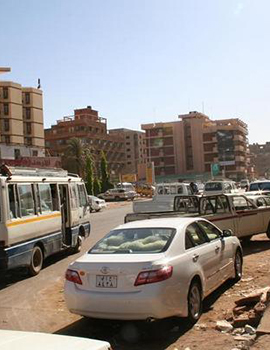
Far from it. In fact, when I first started writing SINS OF THE FATHER, I was convinced that Siya Mfundo would be the main character. That’s why the novel opens with him. But then Tolamo refused to accept his role as a background character. From the terrorist attack in the DRC, I allowed the story and the characters to take over and take me (and hopefully the readers) on a journey. This is probably why Tolamo was able to wrestle back his role as the protagonist—because I allowed myself the pleasure of watching the events unfold rather than planning and controlling them.
That also applies to the new characters. When I began, I expected Nyeleti, who is also such a lovable character, to be obstructionist. But the story, like life, decided to create its own narrative.
There was a long gap between your debut, Blood in the Sand of Justice, and SINS OF THE FATHER. Are you planning another Tolamo adventure in the future?
I thought that SINS OF THE FATHER would be the last Tolamo Moagi novel, but he refused to vanish into the night. I had started working on another Tolamo novel, but those plans were interrupted by my nomination for the International Court of Justice elections. But win or lose, as soon as the elections are done, I will go back to that novel.
To learn more about Dire, visit the University of Pretoria website and follow him on social media @DireTladi4ICJ or Facebook at Dire Tladi.


